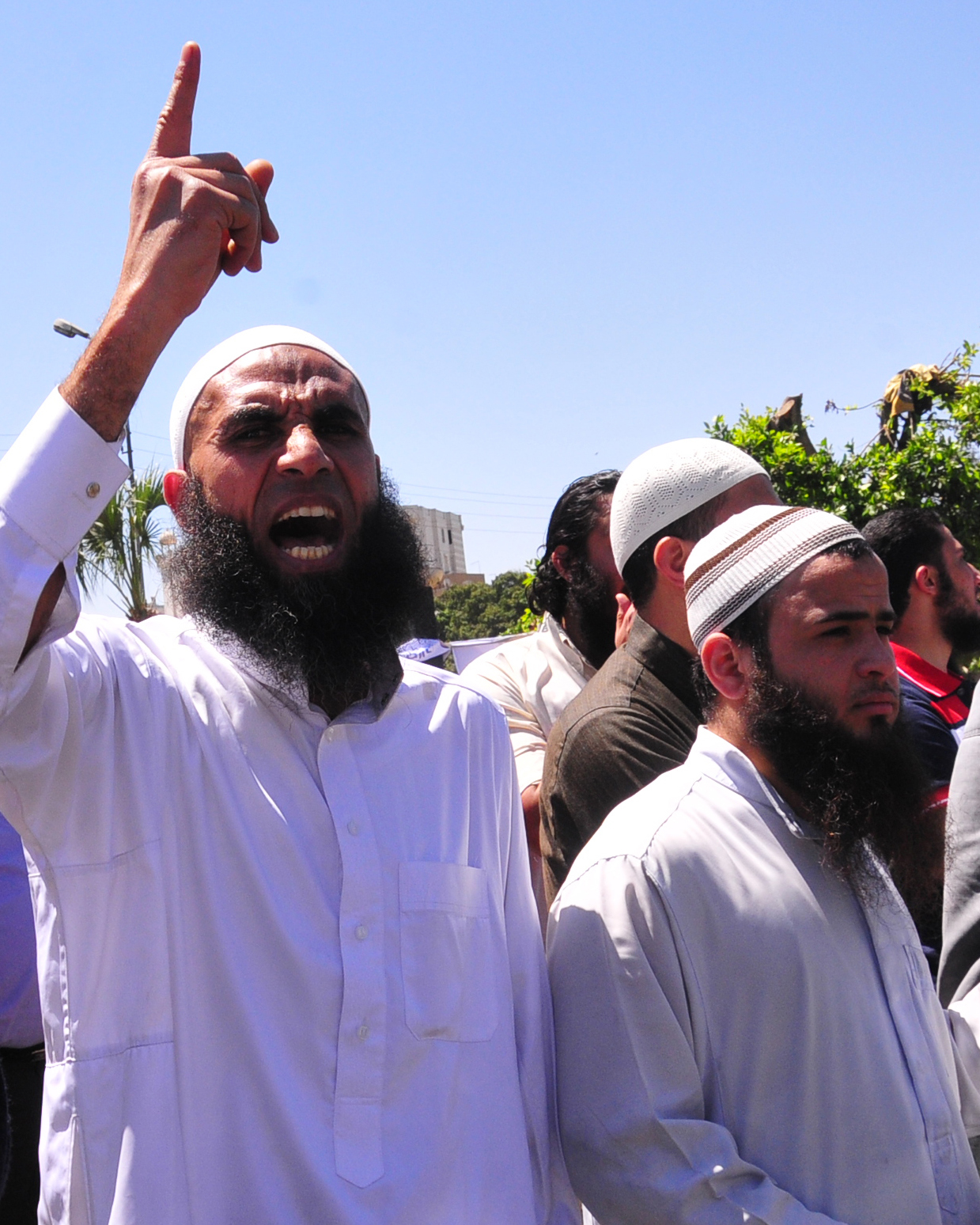
(Photo by Hassan Ibrahim)
The Salafi Da’wa, an ultraconservative proselytizing group, condemned Monday recent calls by Islamist political organisation Salafi Front to stage a new wave of protests entitled “The Muslim Youth Uprising” on 28 November.
The Salafi Da’wa, the Al-Nour Party’s parent organisation, said such declarations are based on “takfiri ideology” and constitute a call for overthrowing the government and the constitution.
The term “takfiri” is used disparagingly to describe people claiming that Muslims who do not adhere to their interpretation of Islam can be challenged and, if necessary, killed.
“We stress that the Egyptian state is constitutionally based on the Islamic Sharia Law,” said the Salafi Da’wa in a statement.
In the same statement, the group also accused the Salafi Front of being a part of the Anti-Coup Alliance (ACA), which supports ousted president Mohamed Morsi.
The Salafi Front, however, said it aims to implement Islamic Sharia and to restore the Islamic identity of the country.
The Salafi Da’wa and the Al-Nour party have supported the post-30 June government and President Abdel Fattah Al-Sisi, and rallied behind the authorities in the constitutional referendum, held in Egypt on 14 and 15 January.
The Al-Nour Party asserted it will remain a vocal backer of the state until it “restores its position at the heart of the Islamic world”. It added that it continues to refuse any form of violence and takfiri way of thinking.
The statement added: “We see that it is contradictory that the ACA calls for violent protests, while pushing representatives to initiate talks with the government.”
Islamic organisations have taken different sides after the ouster of Morsi in July 2013. While the majority of Islamist groups opposed the military takeover, the Al-Nour Party and Islamic institution Al-Azhar placed their support behind the 30 June protests and the government that took over afterwards.
The Al-Nour Party is still a legal political entity and is preparing for the country’s upcoming elections, amid a government crackdown on Islamist organisations. Its stance comes despite an article in the new constitution that bans parties based on religion.
Al-Nour declared that it has officially cleared its legal status, given that the Political Parties Affairs Committee approved the party and its activities.
While the Salafi Front and the ACA are calling for weekly anti-government protests, the Salafi Da’wa and Al-Nour Party strictly forbid salafi youths from participating in any pro-Morsi protests.
Nabil Nai’em, a former Islamist militant and an expert on Islamist groups, said the Salafi Front will not be capable of mobilising the youth for any new wave of protests.
“The Muslim Brotherhood, which is much more organised than the front, hasn’t been able to push the government to change any of its policies,” he said.
Nai’em added that in the coming period, the Salafi Da’wa will be more effective in mobilising Salafi youths, as its rhetoric focuses only on peaceful preaching and political participation. The Salafi Front sees “violence as a tool to achieve objectives.”
Nageh Ibrahim, a founder of radical Islamist group Al-Jamaa Al-Islamiya, said that announcements by the Salafi Front “should not be taken seriously as they don’t have many followers, and because they are only heavily stationed in Al-Daqahleyah city”.
He added that the group leans to violence and tends to expiate the leader. “However, the Islamist youth thorough the last year and a half have experienced both peaceful protesting and militancy, which proved to be an obvious failure.”
When asked about whether the promised wave of protests carries a more radical Islamist rhetoric, Ibrahim said some intellectuals, media and activists are not discriminating between Islam and the Islamist movement. He added that they are launching a campaign against Islam.
This, he added, can cause young Islamists to “believe that the current government is against the religion, and initiate more radical tendencies of opposition.”

